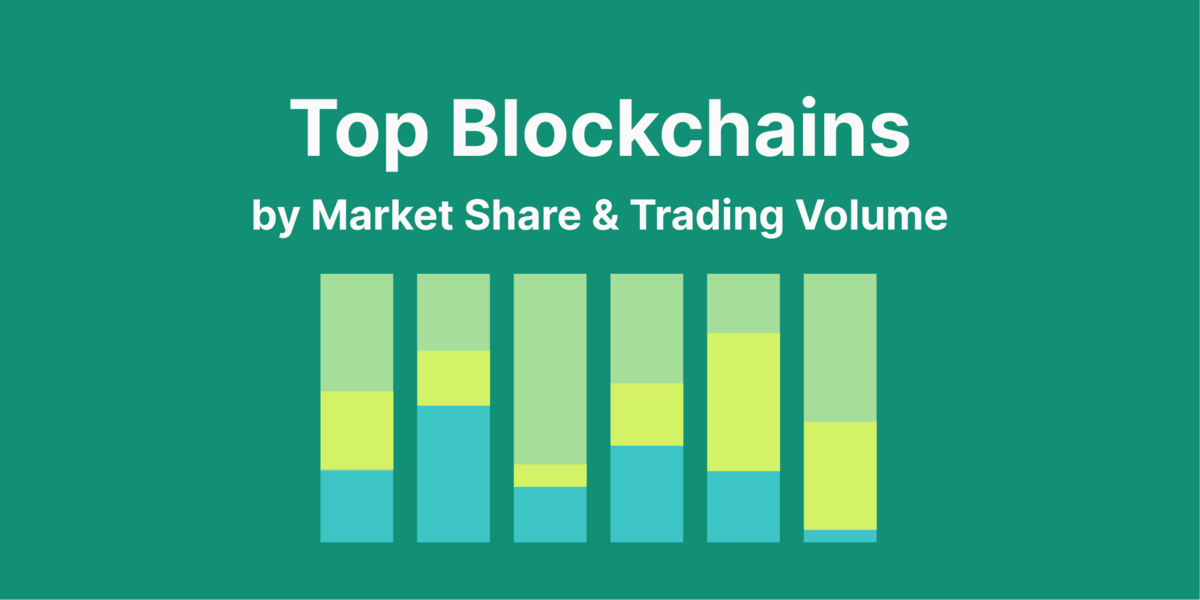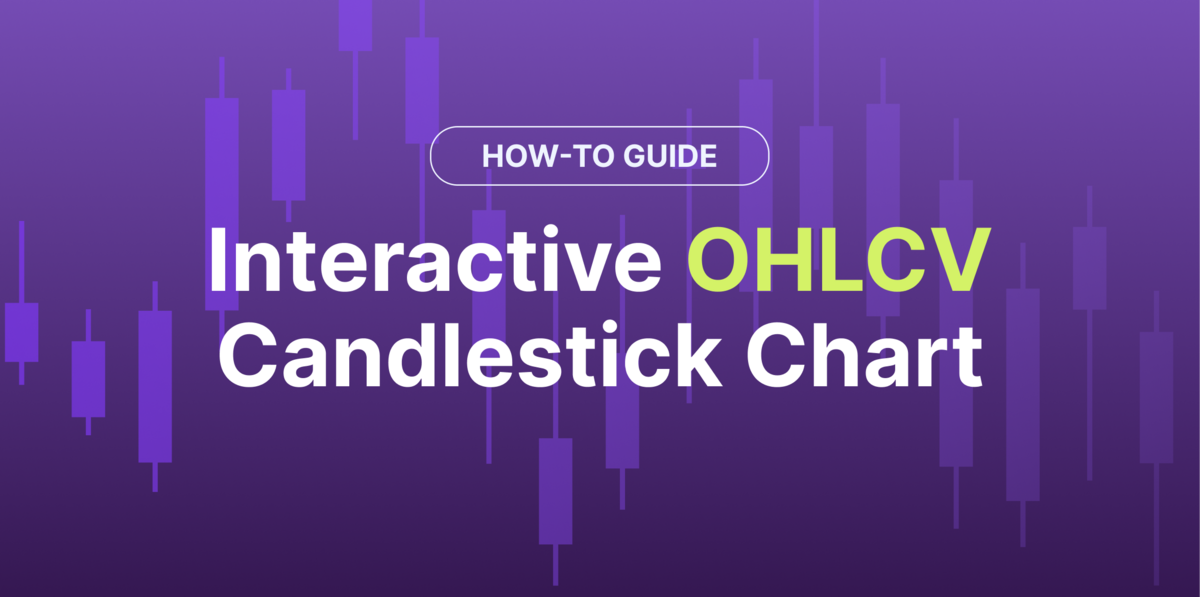To accelerate the mass adoption of cryptocurrencies, finding the hitches and barriers that inconvenience users are essential. One of these hitches is the long and random crypto addresses, which are almost impossible to remember or memorize. They are technically meant for computers as the end users and not humans.
As crypto grows and goes mainstream, developers have devoted much of their efforts to finding solutions to this usability issue. The Ethereum Name Service (ENS) is one of the blockchain projects focused on addressing the issue of long addresses to ensure a better user experience.
But, what exactly is ENS, and how does it work? Read on to find out!
What is ENS?
Simply put, ENS is a decentralized, open-source, and permissible naming system running on Ethereum smart contracts. You can think of it as a nickname generator system for Ethereum addresses.
The primary purpose of ENS is to plot memorable or human-readable names, like "Josiah.eth," to computer-readable identifiers such as Ethereum, web3 wallets, and crypto addresses. These identifiers typically comprise random and extended characters. Therefore, ENS links cryptocurrency addresses like "0x816f7d9e7…" with memorable Ethereum domains or names.
Furthermore, ENS leverages the reverse resolution technique. The technique facilitates linking metadata such as website descriptions or official names with Ethereum addresses.
It's important to note that the role of ENS resembles that of the Domain Name System (DNS) – providing an indefectible user experience. For example, it simplifies web URLs like 195.04.849.674.994 into clear and readable formats like www.coingecko.com
In other words, ENS is to Web3 what DNS is to Web2. Thus, it improves the user experience for Web3 and makes crypto more appealing to mainstream users.
How Does ENS Work?
As discussed above, ENS and DNS share some similarities. Primarily, they serve the same purpose for two distinct spaces. Besides, they function similarly as they operate on a system of dot-parted tiered nomenclature called domains.
Now, high-level domains like .eth in ENS are governed and owned by smart contracts, which are referred to as registrars. These registrars stipulate the dos and don'ts of distributing subdomains.
As such, anyone who complies with the registrar's rules and regulations can create an ENS domain. An added advantage of ENS is that you can import domains that you already own.
As a domain owner of any level, ENS' hierarchical system gives you total control over your subdomain formations. For example, if Josiah owns the Josiah.eth domain, he can create a subdomain like pay Josiah.eth for personal or monetization purposes. In that regard, domain owners enjoy a high level of freedom over their subdomains.
Since ENS runs on the Ethereum Network and its affiliate testnets like the JavaScript library, it automatically identifies the blockchain you are using. Above all, the ENS architecture leverages two primary mechanisms: the registry and resolvers. Let's discuss each of them to understand further how ENS functions.
Registry
The registry comprises a protocol that manages domains and subdomains. Moreover, to monitor the domains, the registry maintains:
-
Information about the domain owner
-
Information about the domain resolver
-
Information about Time-to-Live (TTL) for each domain record
Remember, an ENS domain owner can be a protocol or external source. As such, a registrar is typically a protocol that controls a domain. These protocols can issue subdomains to individuals that comply with the contract rules. Therefore, the domain owners can:
-
Stipulate the domain resolver and the TTL
-
Handover the domain ownership
-
Modify subdomains rights
As such, the registry is relatively straightforward and primarily exists to plot terminology to the appropriate domain resolver. This brings us to the second component of the ENS architecture.
Resolvers
In the simplest terms, resolvers are ENS components in charge of decoding names into crypto addresses. Consequently, any protocol that executes the proper parameters can be a resolver.
Every identifier type, like a crypto address, designates guidelines that a resolver implements to obtain data for a specific use. Thus, it's easy to outline new identifier types anytime through the EPI process.
The ENS name resolving process is made up of two straightforward steps. First, you should inquire about the resolver in charge of a given name from the registry. After finding the resolver, you request it to respond to your request as illustrated below.
Image credit: ENS domains
You can check ENS documentation if you would like to get more technical details on how ENS functions.
Who Founded ENS?
We can trace the origin of ENS to the Ethereum co-creator's 2014 whitepaper for the network. The first acknowledged effort of creating what would eventually become a web3 naming system exists in EIP-137, as Nick Johnson cites three years later.
Nick proposed a smart contract that enables the mapping of memorable names with crypto addresses and other Ethereum identifiers. His proposal would provide improvements over other blockchain naming systems not limited to sub-domains and resolve several resources to a single domain.
In May 2017, Nick and his colleague, Alex Van de Sande, both from the Ethereum Foundation, launched ENS. However, in 2018, Nick secured a $1 million grant from the foundation to establish an organization that will support ENS. He used the grant to form True Names Limited (TNL), a nonprofit making organization headquartered in Singapore. Currently, TNL supervises and funds ENS operations.
ENS Domain Renewal
ENS requires you to renew your domain annually to bar others from claiming a domain. Moreover, you can renew your domain any time before it expires by paying the renewal fee in Ether (ETH).
ENS has a minimum renewal period of 28 days, but there is no maximum renewal period. Besides, the company has a grace period of three months after the expiry date, and you can renew your domain during this period to retain ownership.
What is ENS Used For?
Just like allocating a domain name to your online business and social media accounts, you can assign it to your cryptocurrency wallet for ease of use, especially if you regularly transact through crypto. This is undoubtedly a time-saving trick compared to the copy and paste method. Furthermore, it minimizes the risks of sending crypto to the wrong addresses often associated with using long and unmemorable addresses.
Better still, you can assign several addresses to your ENS domain, implying that you only need a single human-readable domain to receive any digital currency or NFT. As such, these multi-address domains function contextually, meaning you can map your web3 wallet and Ethereum wallet to the same domain.
Therefore, when you use your ENS domain on an internet browser, the browser directs you to your website. When you use it to send or receive crypto, the exchange or dApp you use will automatically detect your crypto address. This way, ENS unifies different web services into one source.
You can also assign ENS domains to decentralized websites, such as those hosted by the InterPlanetary File Systems (IPFS), though this requires you to have higher technical knowledge. Likewise, ENS spreads out DNS capacities by allowing you to register your DNS names.
Let's assume you own a website registered with the DNS domain that hosts your resume and academic certificates. You can connect your DNS-registered website with your ENS domain if you want to maintain one ENS domain name for your website, crypto address, LinkedIn account, Github, etc. Therefore, your ENS domain is a pseudonym for all your online accounts.
The Advantages of ENS
ENS offers multiple advantages to crypto users, as shown below:
Reduction of Errors
As highlighted, ENS facilitates plotting human-readable names to computer-readable identifiers on Ethereum. Using short and memorable names instead of long addresses mitigates the risk of copy-pasting crypto addresses.
Immutability
Since ENS uses smart contracts running on the Ethereum blockchain, ENS transactions are immutable. Like blockchain technology, all ENS records can't be changed or altered. So, how does immutability benefit you?
Well, immutable transactions are censorship-resistant. Additionally, ENS has partnered with the IPFS to prevent unauthorized individuals from interfering with your domain contents.
Simple-to-Use Lookup Technique
Since you store your domain registration records on Ethereum, you can easily find them through Ethereum's block explorer - Etherscan. The explorer allows crypto users to access Ethereum transactions such as wallet balance, amount, and transactions. Domain owners can activate reverse resolution through the ENS dApp settings and display their ENS domains instead of addresses.
Monetizing ENS Domains
You can buy or sell your domain name as a NFT on marketplaces like OpenSea or Rarible. Besides, you can still use it as collateral to secure a loan on lending platforms like NFTfi.
The Growing Popularity of ENS
Due to the growing popularity and discounted Ethereum gas fees, ENS has been experiencing its best months regarding new registrations, domain renewals, and revenue lately.
ENS lead developer Nick strongly believes the primary reason for ENS' rising popularity is that the company is at a point where crypto users are creating mutual communities devoid of mandatory centralized systems. As a result, the company has reached an inflection point where most wallets and influencers support ENS domains.
May is now an All Time High for every single ENS metric we track - registrations, renewals, revenue (ETH & USD) and income (ETH & USD).
— nick.eth (@nicksdjohnson) May 22, 2022
And there's still a week of May left.
🤯 pic.twitter.com/u0tTcVPr3f
According to Nick, discounted gas fees are definitely impacting the ENS onboarding and renewal rates. Gasprice.io estimates that Ethereum transactions cost approximately $0.44 at press time. Previously, gas prices hit $100 during Ethereum network congestion, discouraging potential crypto users from using the network for non-emergency activities.
You can register a 5+ character domain at the current gas prices for less than $5. Exorbitant Ethereum gas fees make the ENS registration cost more; thus, gas prices significantly affect the affordability of ENS domains.
Since April 2022 when the ENS 10K Club came into the limelight, the demand for ENS domains have constantly been rising. ENS users with domains having less than five characters established the club. Also, account registrations and renewals have almost doubled in the last three months. As a consequence of the high number of users, the ENS website has experienced several crashes in the recent past.
ENS names with less than five characters are the most popular because of their rarity (there are only 10,000 in existence). After their release, they sold out within six hours, and some have been resold for as high as 90 ETH on NFT marketplaces.
🔥 recent .eth sales 🔥
— ENS Sales Bot (@EnsSales) May 5, 2022
abc.eth 90Ξ (~$255,000)
555.eth 55.5Ξ (~$162,000)
005.eth 50Ξ (~$146,000)
006.eth 32Ξ (~$93,000)
0x8.eth 25Ξ (~$73,000)
ttt.eth 25Ξ (~$73,000)
025.eth 25Ξ (~$73,000)
008.eth 20Ξ (~$58,000)
2000.eth 20Ξ (~$58,000)#domains #ensdomains $ENS
ENS DAO
A DAO is an abbreviation for a Decentralized Autonomous Organization. It's composed of an open-source code governed by the members and characteristically without any management model like the traditional hierarchical structure of board directors since the rules are coded into the protocol.
If a member wants to introduce or amend some rules, he sends a proposal to the DAO for the rest of the team to vote. This way, DAOs can incessantly grow as the members (people who own the project at heart) can recommend and vote on appropriate changes.
(Read this article to learn about DAOs and how they are helping to build Web3.)
Now let's discuss the ENS DAO briefly.
Generally, the ENS DAO has a delegate system as its foundation, which allows members to choose their representatives. As such, individual members can suggest proposals or amendments, and others will vote on them. Though ENS is decentralized and its DAO operates without human supervision, some functions like multi-sig contracts that govern the treasury and the registrar contract require human intervention.
When the ENS DAO was established, ENS domain owners received 25% of the ENS governance tokens ($ENS) based on different factors. The airdrop was done on November 8, 2021 for ENS domain holders. Furthermore, the company allocated another 25% of tokens to the primary ENS team (contributors) and 50% to the ENS DAO treasury.
The first task of the ENS token holders was voting on the core principles, which contain rules to educate the community on how to govern ENS. Moreover, the ENS constitution recognizes decentralization and integration as the primary goal of the DAO.
ENS Foundation
The ENS Foundation is a Cayman Islands Foundation that represents the ENS DAO physically. So, what's the purpose of having a real-world foundation? Well, this legal entity:
-
Offers limited liability to DAO members for the DAO actions. Remember, if an organization lacks a legal entity, its members may be individually accountable for the actions it does
-
Complies with taxation laws. Again, if an organization doesn't have a legal entity, its members may be individually accountable for its revenue, even though they don't access the company funds directly
-
Signs contracts with other physical companies, such as storing assets
The ENS Foundation is a nonprofit organization, meaning it has no shareholders and doesn't pay dividends to members. The ENS core members: Nick Johnson, Brantly Millegan, and Kevin Gasper, are the foundation's directors and take care of its daily activities.
Aside from the three directors, the ENS Foundation has a supervisor who ensures the directors abide by the Cayman Islands laws. This position is allocated to a Cayman Islands company, DS Limited. The foundation's Articles of Incorporation hands substantial authority to ENS DAO to:
-
Hire or discharge a director, member, or supervisor
-
Restrict the admission of new members in future
-
Command the directors to dissolve the foundation and state the charity or other organization that should inherit its assets
While not written directly in the Articles, the ENS DAO may also require the directors to be accountable for the foundation – like signing contracts and partnering with like-minded companies.
Conclusion
From a traditional point of view, usability is the main barrier hindering the mass adoption of web3. For instance, long and complex addresses seem overwhelming and inconvenient to new crypto users. These addresses are meant for computers as end users.
ENS offers a blockchain solution to this issue by mapping human-readable names like Josiah.eth to complex computer-readable identifiers such as 0x816…e684e. Like the traditional IP addresses that emerged easier to use with the introduction of DNS, ENS domains present the potential for seamless interaction between you and your clients on web3 applications. Therefore, acquiring a DNS domain is a wise decision to ensure your business is ready to tap into the potential of a blockchain-centric future.
Read more:
FAQs
How do I get an ENS domain?
To get an ENS, you need to send some ETH to your web3 wallet, connect your wallet to the ENS Domains website, choose your preferred domain and make your purchase.
Check out this article for a step-by-step guide on how to buy your own ENS domain name.
How to buy an ENS token?
You can buy ENS on popular exchanges like Binance, HitBTC, BKEX, and Digifinex. Navigate this page to find the full list of marketplaces for buying and selling ENS tokens.
What can I do with my ENS domain?
An ENS domain has multiple uses, such as:
- Mapping with your crypto address and using it to receive digital assets effortlessly, without copy-pasting addresses now and again.
- Hosting IPFS sites: Since ENS domains are decentralized, your websites will be immutable and censorship-resistant.
- Monetizing it as an NFT. ENS domains follow the ERC-721 token standard, meaning you can trade, transfer, or use them as collateral to secure a crypto loan.
- Storing your email, profile, bio, and everything else about your online presence. Apart from using it to map your crypto address and keep your IPFS sites, you can use your ENS domain to represent your online presence, such as your Facebook profile, Avatar, Github, Twitter, etc.

Josiah is a tech evangelist passionate about helping the world understand Blockchain, Crypto, NFT, DeFi, Tokenization, Fintech, and Web3 concepts. His hobbies are listening to music and playing football. Follow the author on Twitter @TechWriting001







 Or check it out in the app stores
Or check it out in the app stores
